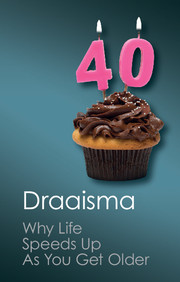Book contents
- Frontmatter
- Contents
- List of illustrations
- Acknowledgments
- 1 ‘Memory is like a dog that lies down where it pleases’
- 2 Flashes in the dark: first memories
- 3 Smell and memory
- 4 Yesterday's record
- 5 The inner flashbulb
- 6 ‘Why do we remember forwards and not backwards?’
- 7 The absolute memories of Funes and Sherashevsky
- 8 The advantages of a defect: the savant syndrome
- 9 The memory of a grandmaster: a conversation with Ton Sijbrands
- 10 Trauma and memory: the Demjanjuk case
- 11 Richard and Anna Wagner: forty-five years of married life
- 12 ‘In oval mirrors we drive around’: on experiencing a sense of déjà vu
- 13 Reminiscences
- 14 Why life speeds up as you get older
- 15 Forgetting
- 16 ‘I saw my life flash before me’
- 17 From memory – Portrait with Still Life
- Bibliography
- Index of names
15 - Forgetting
Published online by Cambridge University Press: 05 July 2014
- Frontmatter
- Contents
- List of illustrations
- Acknowledgments
- 1 ‘Memory is like a dog that lies down where it pleases’
- 2 Flashes in the dark: first memories
- 3 Smell and memory
- 4 Yesterday's record
- 5 The inner flashbulb
- 6 ‘Why do we remember forwards and not backwards?’
- 7 The absolute memories of Funes and Sherashevsky
- 8 The advantages of a defect: the savant syndrome
- 9 The memory of a grandmaster: a conversation with Ton Sijbrands
- 10 Trauma and memory: the Demjanjuk case
- 11 Richard and Anna Wagner: forty-five years of married life
- 12 ‘In oval mirrors we drive around’: on experiencing a sense of déjà vu
- 13 Reminiscences
- 14 Why life speeds up as you get older
- 15 Forgetting
- 16 ‘I saw my life flash before me’
- 17 From memory – Portrait with Still Life
- Bibliography
- Index of names
Summary
Our memory is both fragile and resilient at the same time. It does not take much to throw it out of gear. A small blood clot, a shortage of oxygen, an infection of the cerebral membrane – the slightest organic defect can cause irreparable damage. Yet even in the most drastic forms of memory loss, much is left intact. People with amnesia can still recall the meaning of words and symbols, and still know what movements to perform in order to dress themselves or to eat. However great the ravages associated with brain injuries look at first sight, some parts of the memory seem afterwards to have escaped strangely unharmed.
Of all forms of memory, the autobiographical memory is the most susceptible to disruption. Memories can go wrong in the wake of two types of memory loss that can be fitted on to a timescale. In the case of retrograde amnesia, recollections of events before the injury are impaired. In the most drastic case, everything has gone: where you have just come from, what you were doing, who you are. You know as little about the past as you do about the future, are as unfamiliar with yourself as you are with a stranger. The other form, anterograde amnesia, prevents the storage of memories after the injury. You keep your past, but your future will never become your past.
- Type
- Chapter
- Information
- Why Life Speeds Up As You Get OlderHow Memory Shapes our Past, pp. 226 - 238Publisher: Cambridge University PressPrint publication year: 2012



